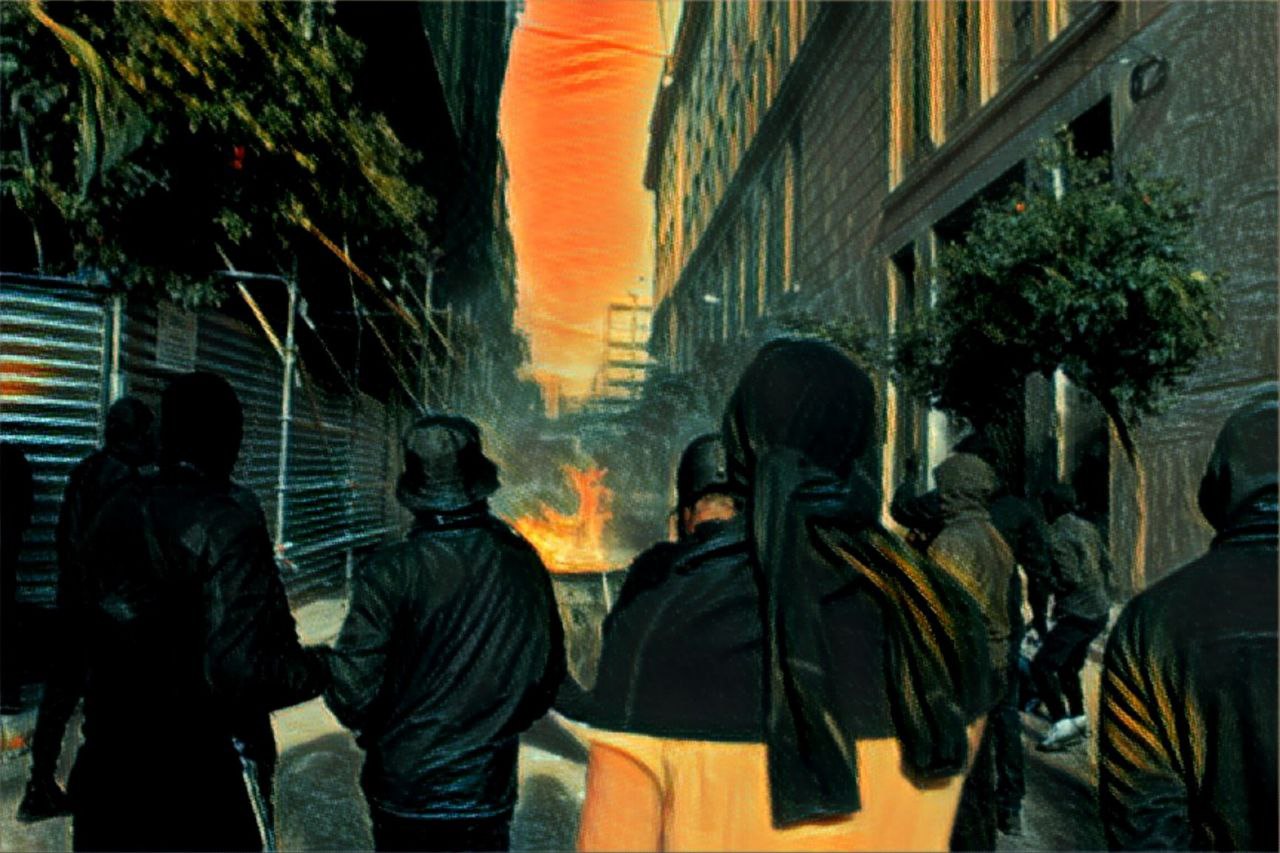More than half of humanity now resides in cities. By 2050, this number is expected to double, creating an unprecedented level of urban growth. Will these cities be places of justice and equality, where prosperity and quality of life are available to all? Or will the urban future be one in which cities benefit the global 1 percent at the expense of the many, where growth and opportunity are coupled with exclusion and repression? The rising level of urban unrest worldwide may be a sign of the direction in which cities are moving. Since the turn of the century, urban uprisings have occurred with increasing frequency, not only in one or a few countries, but across the globe, in cities as varied as Sao Paolo, Paris, and Ferguson, Missouri.
Urban Rage: The Revolt of the Excluded is a book written by sociologist and urban theorist, Mustafa Dikeç. The book examines the phenomenon of urban revolts that have occurred in cities across the world in recent decades, and offers a compelling analysis of the underlying causes and dynamics of these uprisings.
Dikeç poses a simple question at the beginning of his book: Why do urban uprisings occur? Although his research spans the globe, he focuses particularly on advanced democracies with wealthy economies. Dikeç’s approach is historical and qualitative, relying heavily on in-depth archival research, media accounts, and interviews. By carefully analyzing the factors leading up to unrest, the uprisings themselves, and the state responses, Dikeç uncovers a common set of underlying conditions linking each nation and city in which the uprisings occur. Far from being haphazard or self-serving acts of violence committed by criminals or disturbed individuals, Dikeç demonstrates that urban uprisings are products of the violence inflicted upon excluded urban citizens. They are not evidence of defective human behavior, but rather, they are the expression of justified urban rage within political contexts that promise inclusion but do little to provide equality.
Dikeç argues that urban revolts are not simply random acts of violence or expressions of irrational anger, but rather are a form of political action that arises from the exclusion and marginalization of certain groups within cities. The book focuses on the experiences of marginalized urban populations, such as ethnic minorities, immigrants, and the working class, who have been systematically excluded from the benefits of urban development and have been subjected to various forms of discrimination and oppression.
The initial section of the tome, entitled “Rage in the Urban Age,” lays out the author’s framework, while the ensuing six chapters explore how this framework is actualized in specific locales: “Fatal Encounters in US Cities,” “Of Seditions and Troubles in the UK,” “The Algerian War Is Not Over in France,” “Even in Sweden,” “Days of Rage in Greece,” and “Young Turks Find Peace in Revolt.” These chapters serve to elucidate the predictable set of preconditions that generate urban rage. First and foremost, there is the stigmatization of a particular group of people, accompanied by their systematic political and economic exclusion.
The Greek uprising brought people from different backgrounds together, without necessarily unifying them under the banner of a shared ideology or demand. It was a revolt by citizens who felt politically excluded in a context marked by rising unemployment, eroding social rights, corruption, investments in urban space that exacerbated inequalities, and tensions with the police. Decades of capitalist urban development had created a real estate boom and gentrification, accompanied by a steep rise in precarious employment and unemployment. A steady increase in inequality and polarization marked, as it did in our other examples, the context that led to the uprising. The urban development fever followed the priorities of the market and reached its peak with the 2004 Olympic Games in Athens, leaving many citizens embittered as they felt increasingly excluded from the production of their urban spaces. It is in this context that we must understand the Greek December – the ‘days of rage’, as one slogan put it – as citizens standing up for their right to the city and right to participate in the political process.
Days of Rage in Greece
The targeted groups in the cases outlined in Urban Rage include individuals of color, immigrants, and members of minority ethnic groups. Their exclusion is deeply entrenched, and prevents numerous generations of people from enjoying the full rights, opportunities, and privileges offered by the society in which they reside. These practices are legitimized by the dominant political ideology and enmeshed within a system of formal and informal repression that involves spatial segregation, social ostracism, and police brutality and harassment. The daily experiences of oppression engender deeply ingrained grievances among the targeted populations until the moment a tragic, catalyzing event occurs, and the collective response shifts from stoicism to fury.
One could easily romanticize these eruptions as liberatory, but as Dikeç demonstrates, they tend to be reactive and ruinous. Once an uprising is underway, it follows a trajectory that is unpredictable. Nevertheless, the unplanned nature of these reactions does not imply that they are devoid of political significance.
As a scholar concerned with space, politics, and the underlying causes of urban injustice, Dikeç contextualizes each occurrence within a global milieu of changing social and economic conditions that includes economic reorganization, novel institutional practices and urban policies, fluctuating social relationships, and the regulation of urban space. While state authorities frequently dismiss urban uprisings as expressions of the pathological inadequacies of the populations in question, Dikeç draws a connection between these global changes and the rising frequency of uprisings. He takes pains to illustrate how urban space is utilized to regulate targeted populations through exclusion, segregation, and routine police harassment. He concludes that revolts occur when all other appeals to justice have proven futile and cautions readers that as long as liberal democracies continue to perpetuate exclusion and inequality and respond to unrest with repression, uprisings will continue to proliferate and intensify.





